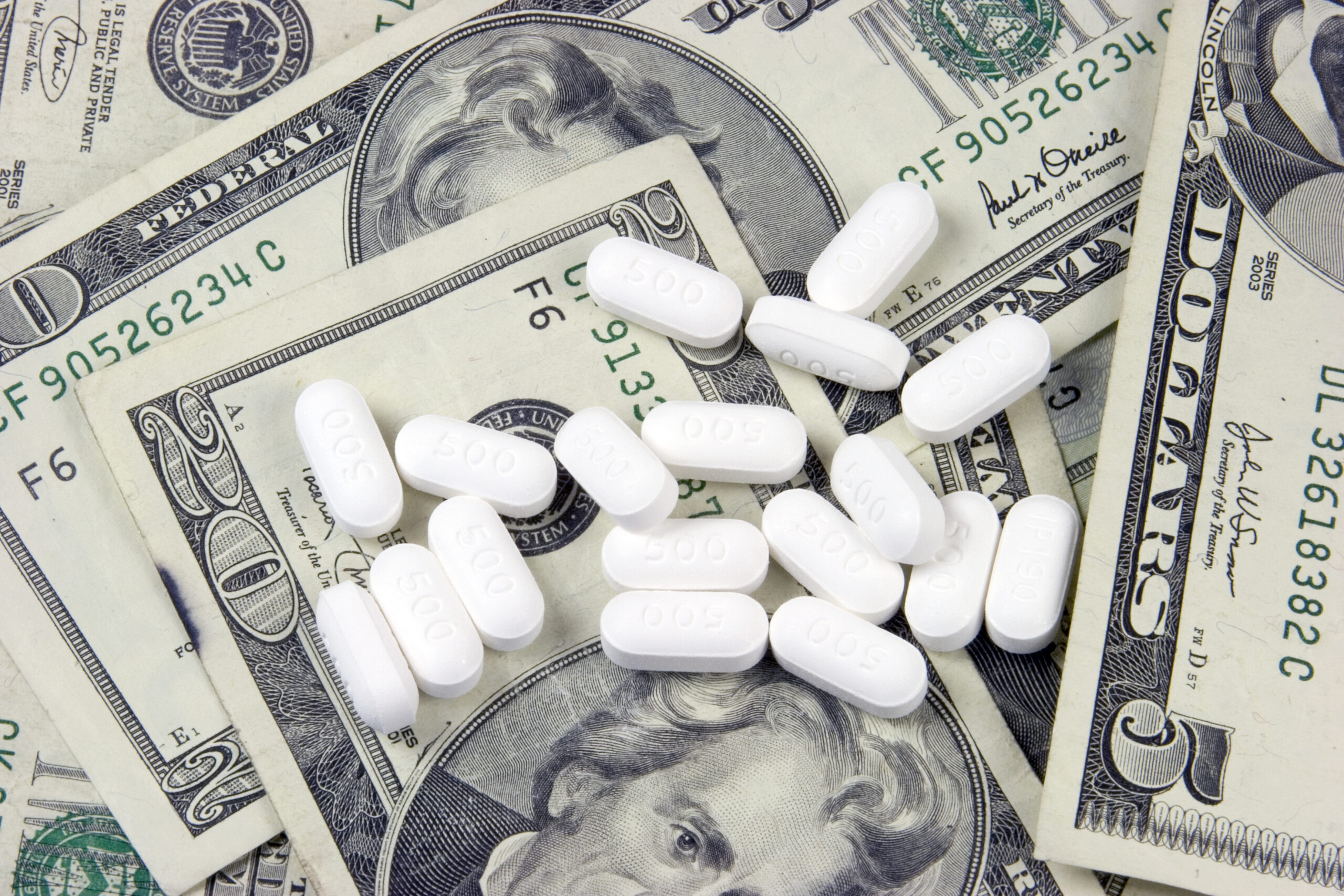© 2025 CSRXP- All Rights Reserved

SECOND OPINION: BIG PHARMA EXEC BOOED AS HE DISMISSES AFFORDABILITY CONCERNS ON HIGH PRICED TREATMENTS AS “LUDICROUS”
Dec 9, 2022
Regeneron Co-Founder Says, “Forget About That” When Pressed on How Patients and the U.S. Health Care System Will Afford Treatments Priced in the Millions of Dollars
On Wednesday, Regeneron Pharmaceuticals co-founder and Chief Scientific Officer George Yancopoulos brazenly dismissed concerns with the affordability of Big Pharma products priced in the millions of dollars during a panel discussion with CNBC reporter Bertha Coombs at the Milken Institute’s Future of Health Summit.
Coombs asked Yancopoulos if he thinks highly priced Alzheimer’s treatments with uncertain clinical value might have a “Sovaldi moment,” referencing public outrage directed at Gilead after the company priced their Hepatitis C drug Sovaldi at $1,000 per pill – or $84,000 for a course of treatment. The launch price of Sovaldi was considered unprecedented at the time, though pales in comparison to Big Pharma’s increasingly outrageous launch prices in the year 2022.
“The prevalence of cognitive impairment, Alzheimer’s and other types of dementia is growing,” Coombs said. “I wonder about the crisis when we have this Sovaldi moment. Remember, back in 2014, we suddenly had a drug that actually cured hepatitis C. Amazing, wonderful, but it came at a time when people weren’t quite ready prepared to pay for it and to deal with that.”
“Forget about paying for it, forget about that,” Yancopoulous said in response to boos from the audience.
“But here’s my question,” Coombs presses. “What happens when hopefully God willing, we do have a cure and it’s priced at a million dollars? How do we deal with that? Is this system prepared for that? And how do we make that equitable for people?”
“I’m sorry, you are so off base, that is so far off the problem,” Yancopoulous says, brazenly dismissing concerns with the impact on patients of Big Pharma launch prices set so high they can increase costs across the entire U.S. health care system.
“I’m sorry but think about how ludicrous your point is,” Yancopoulous continues, before calling for greater returns for Big Pharma companies and massively expanded taxpayer investments in research that subsidizes the development of new blockbuster products for the pharmaceutical industry. “We should start by increasing the NIH budget by tenfold okay and also promoting capital systems that promote increased incentives for innovation.”
The U.S. Food and Drug Administration (FDA) approval of Big Pharma company Biogen’s controversial Alzheimer’s treatment Aduhelm, despite a lack of consensus on the clinical value of the treatment, resulted in its manufacturer setting a punitive launch price on the treatment and premiums increasing for every Medicare Part B beneficiary. The estimated impact of the egregiously priced treatment with unproven clinical value on the U.S. health care system led the Centers for Medicare & Medicaid Services (CMS) to balance coverage until more data on efficacy could be produced.
Big Pharma companies have increasingly been setting out-of-control launch prices on new products to boost profits on treatments with the longest shelf-life of market exclusivity.
- In November, branded manufacturer Provention Bio set a $193,900 price tag for a course of treatment with prescription drug Tzield, which was recently approvedby the U.S. Food and Drug Administration (FDA) as a treatment for Type 1 diabetes. The pricing of the treatment far exceeded expectation and generated shock and concern even from Wall Street analysts. Gregory Renza, an analyst at RBC Capital Markets, said “This (price) is much higher than perhaps what the Street was expecting.” David Hoang, an analyst at SMBC Nikko Securities, said “Investors will have some level of concern that this pricing could lead to insurance hurdles.” Hoang expected a price in the $70,000-$80,000 range. Pink Sheet reported analysts expected a final price between $100,000 and $115,000.
- Also in November, pharmaceutical companies CSL Behring and uniQure set a $3.5 millionprice tag on their hemophilia drug Hemgenix, which was recently approved by the U.S. Food and Drug Administration (FDA) as a treatment for adults with Hemophilia B. The pricing of the drug makes it the most expensive drug in the world and is more than $600,000 higher than what the Institute for Clinical and Economic Review (ICER) estimated for the upper limits of a fair price.
- In October, brand name drug maker Amylyx seta list price of $158,000 annually on the company’s new and unproven treatment for amyotrophic lateral sclerosis (ALS), Relyvrio, following FDA approval. The FDA’s approval came even though the drug has only completed Phase II trials, while most FDA-approved drugs typically require Phase III trials. Amylyx’s $158,000 price tag for Relyvrio was between five and 17 times what experts estimated would be a fair price for the treatment that lacks clear evidence on its clinical value for patients.
- In August, a Reuters analysisfound Big Pharma’s launch prices on new medications are on pace for record highs in 2022 – with the median annual price of the new treatment costing $257,000.
- In June, an academic study published in The Journal of the American Medical Association (JAMA) from researchers affiliated with Harvard University and Brigham and Women’s Hospital found Big Pharma companies hiked launch prices by 20 percent every year for 14 years — and that nearly half of all brand name prescription drugs now cost more than $150,000 per year when they are brought to market.
Watch the full exchange between Regeneron’s co-founder and MSNBC’s Bertha Coombs HERE.
Learn more about bipartisan, market-based solutions to hold Big Pharma accountable HERE.
